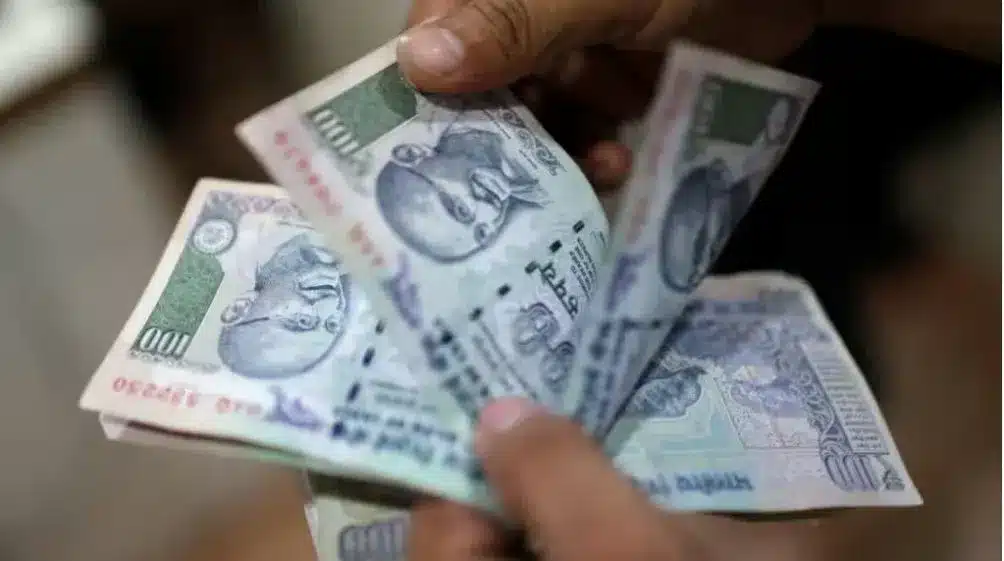What’s in today’s article?
- Why in News?
- What is Foreign Exchange Management Act (FEMA)?
- What is Foreign Exchange Regulation Act or FERA?
- What is the difference between FEMA and FERA?
- FEMA amendments on cross-border share swaps
Why in News?
The Department of Economic Affairs has amended the Foreign Exchange Management (Non-debt Instruments) Rules, 2019, to support the global expansion of Indian companies through cross-border share swaps, mergers, and acquisitions.
These changes, following the Union Budget’s focus on simplifying foreign investment rules, aim to help Indian companies grow internationally.
What is Foreign Exchange Management Act (FEMA)?
- About
- FEMA came in 1999 as a successor to the Foreign Exchange Regulation Act or FERA of 1973, with changing economic conditions in a post-liberalisation India.
- The act seeks to regulate foreign exchange transactions, currency transactions, and foreign payments in order to promote orderly development and maintenance of the foreign exchange market in India.
- Objective
- The objective of FEMA is:
- to facilitate external trade and payments,
- to promote the orderly development and maintenance of foreign exchange market in India, and
- to regulate the transactions related to foreign exchange.
- The objective of FEMA is:
- Functions
- The FEMA regulates various aspects of foreign exchange transactions, including acquisition and holding of foreign exchange, payment and settlement of foreign exchange transactions, export and import of currency, and other related activities.
- The act also empowers the RBI to make rules and regulations to carry out the provisions of the act. Violation of the provisions of FEMA can result in penalties and fines.
What is Foreign Exchange Regulation Act or FERA?
- Background
- FERA was designed for an era in India marked by a shortage of foreign exchange.
- It was aimed at conserving forex to ensure it was utilised only in the interest of the development of the country.
- About
- FERA came into effect in 1973 and was aimed at regulating foreign exchange transactions and payments in the country.
- The act provided the Indian government with extensive powers to regulate foreign exchange transactions.
- This included the power to impose restrictions on the use of foreign exchange, to regulate the flow of foreign exchange, and to prohibit transactions that were deemed to be against the national interest.
What is the difference between FEMA and FERA?
- Overall, FEMA is a more modern and liberalized law compared to FERA, which was considered to be more restrictive and focused on control and regulation.
- FEMA seeks to promote foreign investment in India by simplifying the rules and regulations related to foreign exchange transactions, while FERA was seen as a hindrance to foreign investment in India.
FEMA amendments on cross-border share swaps
- About the news
- The Union Finance Ministry announced key amendments to foreign exchange regulations.
- This includes mandatory government approvals for investments from countries sharing land borders with India.
- Key highlights
- The amendments:
- simplify cross-border share swaps,
- standardize definitions like “control,” and
- align the treatment of downstream investments by OCI-owned entities with those by NRIs on a non-repatriation basis, encouraging more NRI participation in Indian markets.
- Government clearance is now required for any share transfer involving border-sharing countries, regardless of the sector.
- The rules also extend non-FDI status for non-repatriation investments to OCIs and standardize control definitions across laws, impacting foreign portfolio investors (FPIs).
- The amendments follow the Union Budget’s push to simplify FDI rules, promote the use of the Indian Rupee in overseas investments, and align the definition of “startup” with updated DPIIT standards.
- The amendments:
- This revised startup definition, which raises the turnover threshold to ₹100 crore and extends the recognition period to 10 years, aims to attract more foreign investment.
- The updates also introduce provisions for equity share swaps, permitting them with government approval.
- These changes are part of efforts to create a more foreign-investor-friendly environment and enhance the ease of doing business in India.
- The amendments also enable FDI in white-label ATMs to enhance financial inclusion.
- White-label ATMs (WLAs) are ATMs operated by non-bank entities, allowing customers of any bank to withdraw cash and access other banking services.
These ATMs do not display the logo of any specific bank and charge fees for transactions.
Q.1. What are White-label ATMs (WLAs)?
White-label ATMs (WLAs) are ATMs operated by non-bank entities, allowing customers of any bank to withdraw cash and access other banking services. Unlike traditional ATMs, WLAs do not display any specific bank’s logo. They aim to increase financial inclusion, particularly in underserved areas, by expanding access to banking services.
Q.2. What are foreign portfolio investors (FPIs)?
Foreign Portfolio Investors (FPIs) are international investors who invest in a country’s financial markets, primarily in stocks, bonds, and other financial assets, without taking control of the companies. FPIs seek short-term profits and can influence market dynamics. They are regulated to ensure stability and transparency in the host country’s economy.
Source: Govt notifies FEMA amendments on cross-border share swaps | RBI | Times of India | Indian Express
Last updated on November, 2025
→ Check out the latest UPSC Syllabus 2026 here.
→ Join Vajiram & Ravi’s Interview Guidance Programme for expert help to crack your final UPSC stage.
→ UPSC Mains Result 2025 is now out.
→ UPSC Notification 2026 is scheduled to be released on January 14, 2026.
→ UPSC Calendar 2026 is released on 15th May, 2025.
→ The UPSC Vacancy 2025 were released 1129, out of which 979 were for UPSC CSE and remaining 150 are for UPSC IFoS.
→ UPSC Prelims 2026 will be conducted on 24th May, 2026 & UPSC Mains 2026 will be conducted on 21st August 2026.
→ The UPSC Selection Process is of 3 stages-Prelims, Mains and Interview.
→ UPSC Result 2024 is released with latest UPSC Marksheet 2024. Check Now!
→ UPSC Prelims Result 2025 is out now for the CSE held on 25 May 2025.
→ UPSC Toppers List 2024 is released now. Shakti Dubey is UPSC AIR 1 2024 Topper.
→ UPSC Prelims Question Paper 2025 and Unofficial Prelims Answer Key 2025 are available now.
→ UPSC Mains Question Paper 2025 is out for Essay, GS 1, 2, 3 & GS 4.
→ UPSC Mains Indian Language Question Paper 2025 is now out.
→ UPSC Mains Optional Question Paper 2025 is now out.
→ Also check Best IAS Coaching in Delhi

















